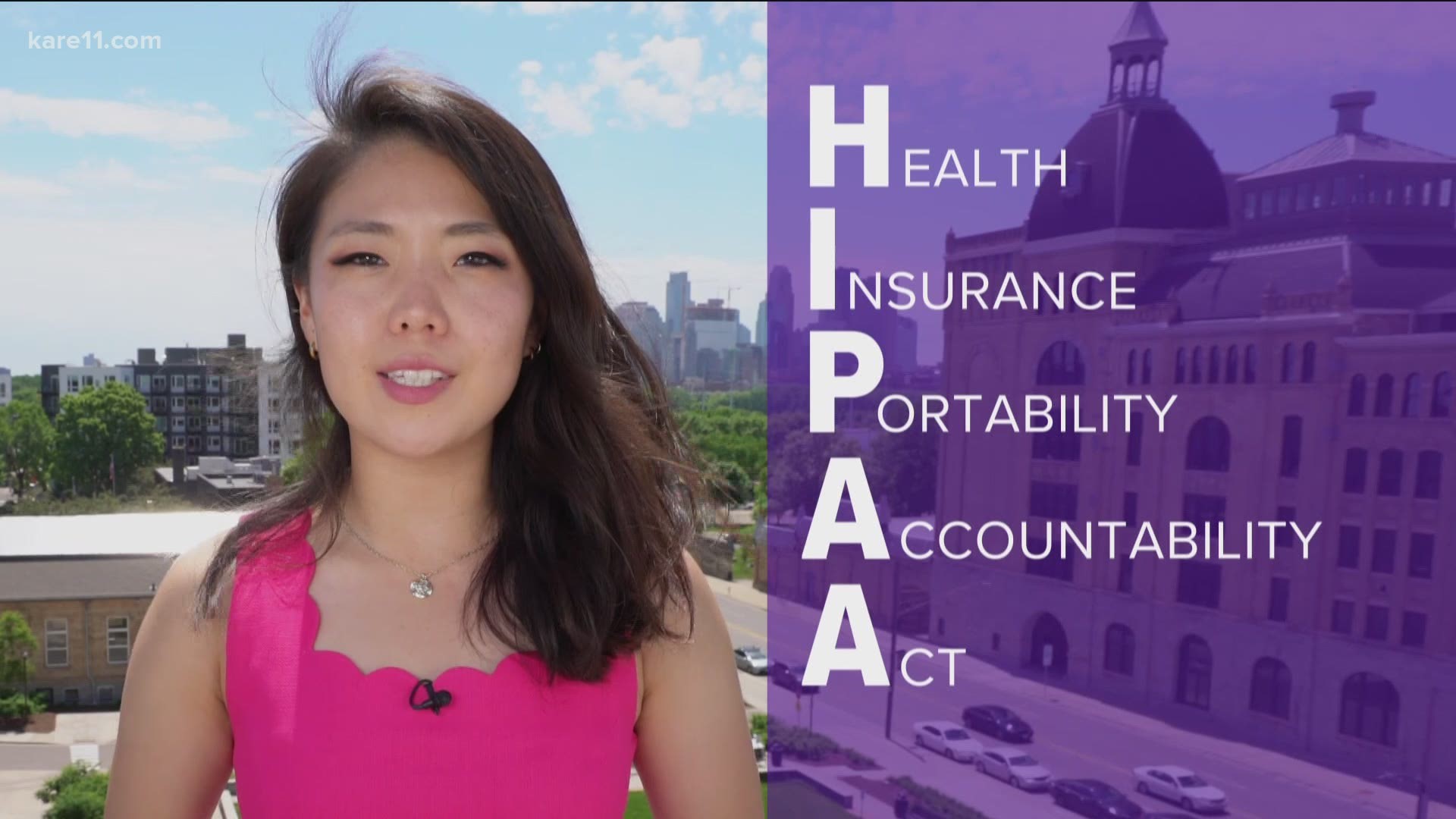MINNEAPOLIS — Let's say you're returning to work, and you want to know if your co-workers are vaccinated for COVID-19. Often times a knee-jerk reaction to that question maybe statements like: "You have no right to know, that's a HIPAA violation."
Sounds like it could be true! Even Representative Marjorie Taylor Greene tweeted out "vax records along with all medial records are private due to HIPPA [sic] rights."
So let's do what we do best on this show. Starting with the question of "What is HIPAA?"
It's also known as the Health Insurance Portability and Accountability Act of 1996. It protects a person's identifying health information from being shared without their knowledge or consent.
But here's the catch, it only applies to the medical records field, like insurance providers, and healthcare providers.
Meaning, if your neighbor asks you if you've been vaccinated, that's not a HIPAA violation.
This also most likely means your employer asking you if you've been vaccinated is also not in violation of that act.
On Friday, the Equal Employment Opportunity Commission updated its guidelines when it comes to vaccine mandates.
They said companies in fact, can make inoculation a requirement before a return to the office.
But they have rules to follow of course. Companies must accommodate employees with health concerns like allergies, and also employees who have religious reasons against vaccinations.
The commission also said companies should be keenly aware that some employees may not have had a chance to access the vaccine, which probably explains why many companies are going the route of "strongly encouraging," rather than "requiring" the shot.
Another catch here: if your state has a law against government entities or businesses from asking for proof of vaccination, it's most likely that you will have to follow state law.
Minnesota currently doesn't have vaccine passports. There is also a pending bill in the legislature that would prohibit government entities or businesses from requiring proof of vaccination to enter a building open to the general public. While it sits in the legislative process, we won't have the answers to that question for a while.
So what about offering incentives? The EEOC said that's cool too. As long as the incentive isn't so good that it's something the employee simply cannot turn down.
At this point, many work places are in a "wait and see" mode. Many say they are waiting for full FDA approval of the vaccines before they roll out their mandates. As a reminder, the vaccines available right now in the U.S. are all under an emergency use authorization.

